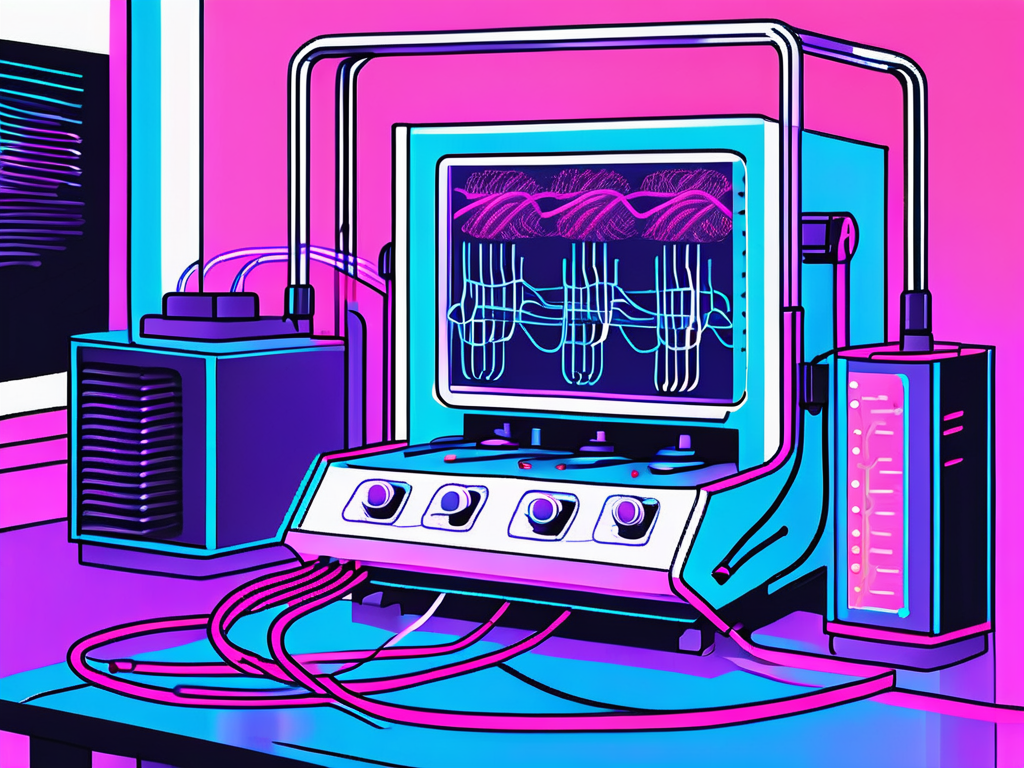An Electroencephalogram (EEG) Technician is a specialized healthcare professional who uses advanced medical technology to record electrical activity in the brain. This role is critical in diagnosing and treating neurological conditions such as epilepsy, stroke, and brain tumors. But what exactly does an EEG Technician do on a daily basis? Let’s delve into the intricacies of this fascinating profession.
Role and Responsibilities of an EEG Technician
Conducting EEG Tests
The primary responsibility of an EEG Technician is to conduct EEG tests. These tests involve placing electrodes on the patient’s scalp to record brain activity. The technician must ensure that the electrodes are properly placed to obtain accurate results. They also monitor the patient’s condition throughout the test and make necessary adjustments to the equipment.
EEG Technicians are responsible for maintaining the cleanliness and functionality of the EEG equipment. They must regularly inspect and calibrate the machines to ensure they are working optimally. In addition, they must adhere to strict hygiene standards to prevent infection.
Interpreting Results
Once the EEG test is complete, the technician must interpret the results. They analyze the recorded data to identify any abnormalities in the brain’s electrical activity. These findings are then reported to a neurologist or other medical professional for further evaluation and treatment planning.
It’s important to note that while EEG Technicians can identify abnormalities, they are not typically responsible for diagnosing conditions or prescribing treatment. This is the role of the physician. However, the technician’s findings are crucial in aiding the physician’s diagnosis and treatment plan.
Skills and Qualifications Required
Education and Training
Most EEG Technicians hold an associate’s degree in neurodiagnostic technology or a related field. Some technicians may also have a bachelor’s degree. These programs typically cover topics such as neuroanatomy, neurophysiology, and EEG technology.
In addition to formal education, EEG Technicians must also complete clinical training. This hands-on experience allows them to apply their theoretical knowledge in a practical setting. It also provides them with the opportunity to develop their patient care skills.
Certification
Many employers prefer to hire EEG Technicians who are certified. Certification demonstrates that the technician has met certain standards of proficiency and professionalism. The American Board of Registration of Electroencephalographic and Evoked Potential Technologists (ABRET) offers certification for EEG Technicians.
To become certified, technicians must pass an exam that tests their knowledge and skills in EEG technology. They must also meet certain educational and clinical experience requirements. Once certified, technicians must engage in continuing education to maintain their certification.
Work Environment and Salary
Work Environment
EEG Technicians typically work in hospitals, clinics, or private practices. They may work in a dedicated neurodiagnostic lab or in various areas of a healthcare facility, such as the intensive care unit or the operating room. They often work with a team of healthcare professionals, including neurologists, nurses, and other technicians.
The work can be physically demanding, as technicians may need to stand for long periods and assist patients who have mobility issues. They may also need to work irregular hours, including nights and weekends, to accommodate patient schedules.
Salary
The salary of an EEG Technician can vary depending on factors such as location, level of experience, and the type of healthcare facility. According to the U.S. Bureau of Labor Statistics, the median annual wage for EEG Technicians was $55,210 in May 2020. However, salaries can range from around $40,000 to over $70,000.
Conclusion
Being an EEG Technician is a rewarding career that allows individuals to use advanced technology to help diagnose and treat neurological conditions. It requires a combination of technical skills, attention to detail, and compassion for patients. With the right education, training, and certification, you can embark on a fulfilling career as an EEG Technician.

Advance Your Career as an EEG Technician
If you’re inspired to take the next step in your EEG Technician career, Neuro Pathway is here to guide you. We specialize in connecting Neurodiagnostic Professionals with leading hospitals and private organizations seeking talented full and part-time staff. Our dedicated Career Coaches are committed to your career advancement, offering personalized support, educational resources, and exclusive employment opportunities. Don’t miss out on the chance to elevate your professional journey. Find New Job Opportunities today and unlock your potential with Neuro Pathway.





